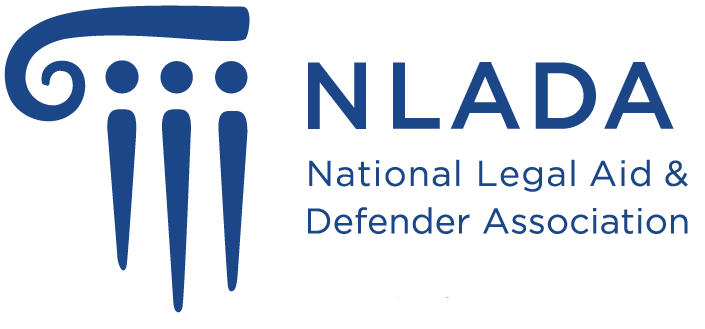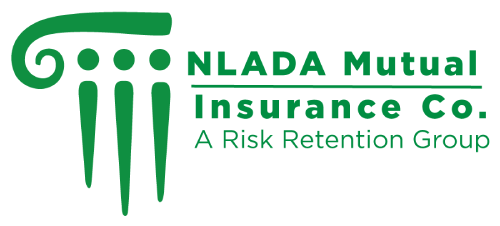
Importance of Defender Leadership, Post-2020
It was already hard being a zealous defender advocate against seemingly insurmountable odds prior to the pandemic. After the lockdown, even more concessions were unfairly being asked of defenders and their clients as the criminal legal system modified operations during the pandemic. To what degree did these concessions infringe on defender independence? How might other actors in the criminal legal system continue to threaten defender independence, with or without pandemic restrictions? What are our defender leaders doing to combat ongoing and new threats to defender independence?
Rosalie Joy, NLADA Vice President, Defender Legal Services and head of its BJA-funded Sixth Amendment Initiative, will speak with defender leaders about threats to defender independence and how emerging leaders can learn to identify and fight these ongoing threats.
What leaders are doing to respond to challenges coming out of lockdown?
Defender independence - challenges that have been exacerbated by pandemic - how to recognize and respond to threats to defender independence
This Small Group discussion will consist of:
- Introductions
- Leadership challenge/opportunity
- How leadership challenge/opportunity affected by events of past 18 months
- Identify the tools you seek to meet challenges/opportunities
What Type of Leader Are You?
There are several different types of leadership, with certain types more appropriate than others depending on the challenge or crisis confronted. We will examine the various types of leadership and what characteristics are most prominent in better and poor leaders. This session will also address the concepts of emotional intelligence and body intelligence, and how we might apply these concepts to our leadership practice. This session will help us think of traditional leadership concepts in a new light, enriching our understanding of those we lead and what type of leadership they may need in different situations.
Learn about and identify what types of leadership and when a type might be more beneficial in given situations
Learn about Emotional Intelligence and Body Intelligence and how to apply these concepts when leading a team, within or outside of the office.
Small Group
Emotional intelligence assessment - analysis with peers - informs you about your leadership style or challenge?
What type of leadership is more appropriate for your leadership position/challenge/opportunity?
Wellness: Taking Care of You and Those You Lead
Many of us have participated in training about second-hand trauma or about how to deal with the stress of the job of a public defender. As leaders, we should also understand first-hand trauma experienced by colleagues and those we lead, as well as trauma experienced by clients. How do we use our emotional intelligence, body intelligence, empathy, and understanding to help ourselves to become better leaders and to help those we lead as whole persons, not just defenders.
Trauma - identifying it in those you lead, clients, and in yourself
Learn skills and tips how to respond to stress and trauma. Small Group discussion will explore
- Individual and group exercises that help respond to stress and trauma.
- Explore how emotional intelligence helps leaders identify and respond to stress/trauma in self and others
Multigenerational Leadership: Generational Perspectives on Reform and Abolition
With the protests and demands of change last summer following the murder of George Floyd, new leaders emerged, along with the reassertions of advocates from prior phases of the fight for social justice. Within the push for change has been the debate over what type of change should be sought? How much change and how soon? Who should lead and where? As with other movements for change, this debate has largely broken down along generational lines. These debates also spill over into our work environments, affecting the choice of leadership and how we do our work. In this session we want to explore how generational debates around change affect our work as criminal defense advocates. We will:
- Examine different generations in office today, to include Gen Z.
- Define reform and abolition, including their connotations. Is there a different perspective based on generational differences?
- Explore how we can address criminal legal system challenges while addressing our internal debates on how to proceed in tackling these challenges.
Small Group discussion will explore
- Do you think there is a reform versus abolition spectrum? Where do you fall on it? Why?
- What needs to be abolished in your jurisdiction? How do you tackle this issue: by abolition or reform steps towards abolition? What does that look like?
- Have these debates changed the way we perceive leadership? Or what we think leadership looks like?
Challenging Bias in Leadership
If you were a casting director tasked with casting a leader for a movie, what is the first image that comes to mind? Does this leader look like you? We will look at some common biases we have about what a defender looks like and what it takes to be a good leader. We will also discuss what is and should be done to diversify defender leadership. This plenary will be led by two experienced criminal defense leaders - Tina Luongo and Mary Fox - who not only embrace change, but also actively work to effect change by increasing diversity in their ranks. You'll learn:
- How to examine whether there is bias in leadership or other areas in spaces where you lead? What questions should you be asking?
- What has worked in inspiring change to challenge bias and diversify leadership?
- What actions can you take to challenge bias and diversify leadership in your agency/jurisdiction?
Identify bias in leadership in your office or leadership spaces.
- What skills/training have worked or haven’t worked in your space? What do you think should happen next to challenge bias?
- How can you be a part of this next step in challenging bias? What are you going to do?

